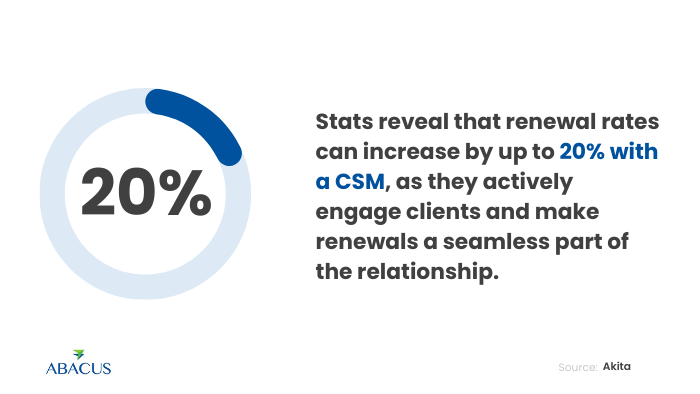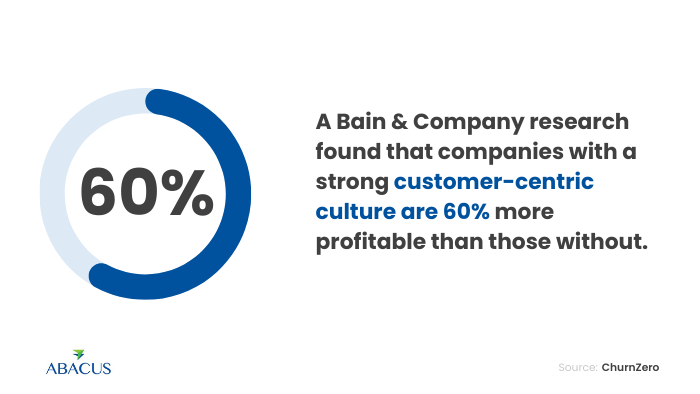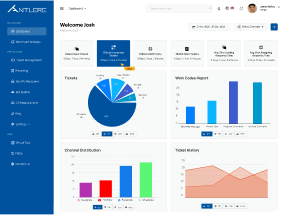What Is a Customer Success Manager (CSM)?
A decade ago, very few businesses were familiar with the concept of a customer success manager (CSM). Today, companies actively rely on this role to grow revenue, drive profitable growth, and optimize customer retention.
As of 2024, nearly 90% of companies have established a customer success division, reflecting a strong focus on customer satisfaction and retention—especially in SaaS and B2B businesses. This shift highlights why understanding what a customer success manager is and how the role functions has become essential in the modern business landscape.
What Does a Customer Success Manager Do?
A customer success manager (CSM) acts as a mediator between the customer’s point of purchase and the company’s internal sales and marketing teams. Their primary responsibility is to support customers as they transition from buyers to active users of a product or service.
By guiding customers through adoption, usage, and best practices, a CSM helps elevate product value, minimize churn, and deliver a broader spectrum of ongoing support. Their role ensures customers experience tangible value early and consistently.

How Is a Customer Success Manager Different from Customer Support?
While customer support agents typically play a reactive role—responding to customer queries and resolving immediate issues—a customer success manager operates proactively.
A CSM focuses on demonstrating product value before problems arise. They work to build long-term customer relationships, foster loyalty, and ensure customers achieve their desired outcomes rather than simply resolving tickets or complaints.
Why Is the First Customer Success Milestone Important?
A critical moment in a customer’s journey is their first success with a product or service. This success can take different forms, such as reaching a revenue goal, saving time, or streamlining operations.
When there is a long gap between purchase and this first success, customers may feel frustrated or disengaged, increasing the risk of churn. A customer success manager helps bridge this gap by guiding customers toward efficient product usage and evaluating satisfaction throughout the process.
How Do Customer Success Managers Help Reduce Churn?
Customer success managers reduce churn by ensuring customers quickly understand how to use a product effectively and achieve value in a short time. They monitor customer engagement, identify friction points, and provide proactive guidance to prevent dissatisfaction before it escalates.
By keeping customers aligned with the product’s benefits and continuously assessing their experience, CSMs help maintain long-term retention.
How Do Customer Success Managers Onboard Clients?
One of the core responsibilities of a customer success manager is client onboarding. During onboarding, CSMs guide customers through product features, workflows, and best practices so they can fully leverage what they have signed up for.
This structured onboarding process empowers clients to achieve their goals, improves adoption rates, and lays the foundation for long-term success.
How Do Customer Success Managers Handle Renewals?
Customer success managers play a vital role in ensuring contract renewals by consistently delivering value and addressing customer concerns. They monitor customer satisfaction, resolve issues, and maintain strong relationships that make renewals a natural extension of the partnership.
Research shows that renewal rates can increase by up to 20% when a CSM actively engages clients and integrates renewals into the overall customer experience.

How Do Customer Success Managers Support Upselling and Cross-Selling?
CSMs act as a strategic bridge between sales and service delivery. By understanding a client’s business objectives, they can recommend relevant upgrades or complementary services.
For example, a BPO client using customer support services may benefit from data analytics or back-office support. A customer success manager can identify these opportunities, suggest appropriate add-ons, and help increase revenue per customer while improving operational efficiency.
What Is a Customer Success Vision and Why Does It Matter?
A customer success vision defines what success looks like for the client from the beginning of the relationship. Leading customer success platforms such as Gainsight and HubSpot emphasize aligning this vision with client goals during onboarding.
This process involves identifying key performance indicators (KPIs), creating timelines, and ensuring both the company and the client agree on success metrics. A clearly defined success vision helps guide ongoing engagement and measurable outcomes.
How Do Customer Success Managers Build Cross-Functional Relationships?
Not all customer issues fall directly under a CSM’s responsibility. Technical problems or basic business queries are often handled by support teams. However, customer success managers play a key role in fostering collaboration between customers, support teams, sales, and marketing.
CSMs understand customer challenges and friction points while maintaining direct communication with internal teams. This allows them to create a cross-functional feedback loop that integrates customer insights into internal operations.
Why Is Cross-Functional Collaboration Important in Customer Success?
Cross-functional collaboration ensures that customer feedback informs product development, marketing strategies, and service improvements. For example, Zoom is well known for its proactive customer success approach.
During the pandemic, Zoom’s customer success managers collaborated closely with technical support and sales teams to manage high user demand, troubleshoot issues, and refine offerings. This coordination helped support enterprise customers and sustain rapid growth.
How Do Customer Success Managers Promote a Customer-Centric Culture?
Although customer-centricity is a collective effort, customer success managers play a central role in making customer care a priority. They track customer friction points, voice concerns internally, and collaborate with product, sales, marketing, and support teams.
According to Bain & Company, organizations with a strong customer-centric culture are 60% more profitable than those without one—highlighting the strategic value of the CSM role.

What Skills Does a Customer Success Manager Need?
Modern customers expect tailored service and expert guidance. As a result, a customer success manager job description typically includes several core skills:
- Industry and Product Knowledge: Deep understanding of the product or service to guide customers effectively.
- Data Analysis: Ability to gather, analyze, and interpret customer usage data to identify growth opportunities.
- Technical Proficiency: Familiarity with tools such as CRM systems and analytics software.
- Project Management: Capability to create and manage success plans with defined milestones and timelines.
- Collaboration Skills: Strong communication and teamwork abilities to coordinate across multiple internal departments.
How Does a Customer Success Manager Support Long-Term Client Success?
A customer success manager supports clients throughout every stage of their journey—from product implementation to optimization and growth. They create structured success plans, run performance reports, clarify product details, and help clients maximize their investment.
At their core, customer success managers are strategic problem-solvers who prioritize long-term satisfaction. By empowering customers with insights, strategies, and proactive support, they make the journey to success both measurable and rewarding.
How Can a Customer Success Manager Impact Your Business Growth?
Customer success managers drive sustainable growth by improving retention, increasing customer lifetime value, and strengthening relationships. Their proactive approach ensures customers feel supported, valued, and confident in their decision.
Explore the difference a customer success manager can make to your business. Let Abacus BPO empower your path to success with strategic solutions, proactive guidance, and personalized support tailored to your business goals.

FAQ's
An account manager is essentially responsible for handling contracts, renewals, and pricing whereas a customer success manager focuses on optimizing customer satisfaction and product adoption by assisting clients in attaining their goals.
Customer success managers are mostly employed in telecommunication sectors, SaaS, healthcare, finance, and tech, where long-term customer support and relationships are important to product retention and use.
Having a customer success manager cuts down churn, facilitates renewals, and identifies upselling opportunities. They also help boost Customer Lifetime value (CLV) - directly affecting stability and revenue growth.
CRMs can use a variety of different tools including:
- Analytics platforms
- Customer relationship management (CRM) systems
- Project management software
- Customer success platforms like ChurnZero or Gainsight







